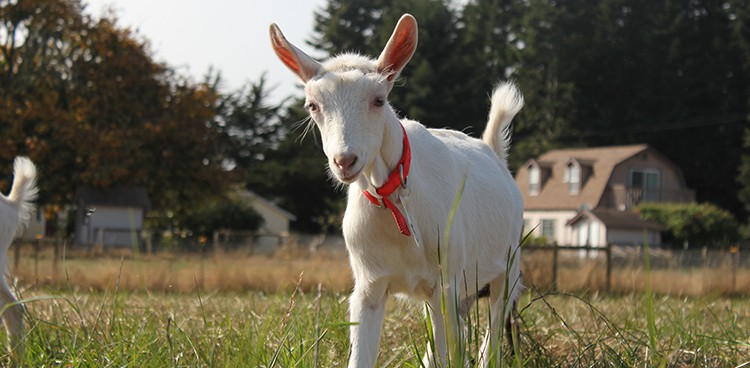
Could Cypress Grove credit its goat cheese success to soft jazz?
According to dairy director Ryan Andrus, the 900-strong flock is milked twice daily with chill, syncopated tunes as background music. He explains in a recent Food & Wine article how the smooth melodies create an enjoyable, relaxing environment and even help the animals produce better milk. “We can tell they like it because they maintain a calm and mellow mood, energy, and there is a docility about the entire herd,” says Andrus. “They do not make gestures, motions, behaviors, that indicate concern or stress.”
This idea of playing soothing music for livestock is not a new one. A Midwestern farm that played classical music to its pigs initially inspired Andrus; the farmer claimed it helped the pork taste better.
Scientific research also backs up this correlation between happier animals and pleasant music and sounds. A study by renowned animal science professor Temple Grandin finds that,“In facilities where livestock are handled, loud or novel noises should be avoided because they distress livestock.” University of Leicester researchers discovered a three percent increase in cow’s milk production when slow music was played during milking (versus fast music).
For Cypress Grove’s goats, it seems that nothing but smooth jazz will do. Classical music doesn’t work because of the frequent tempo and dynamic changes. Also, jazz tracks must be light; horn-heavy works are too “abrupt” and “squawky” for the goats to chill out to. “That is why we can’t play things like Thelonius Monk or some of the more avant-garde, creative jazz music,” Andrus says.



